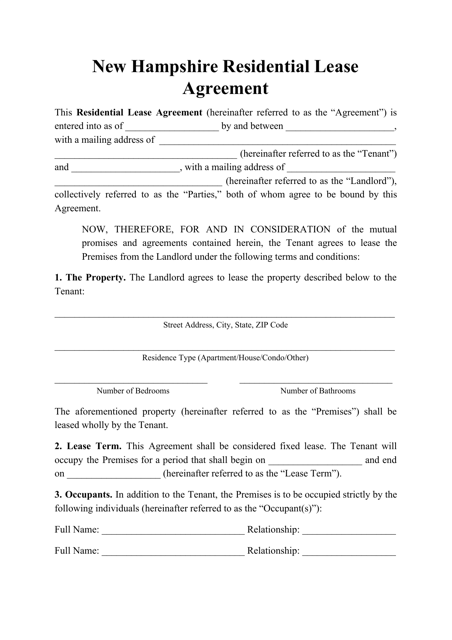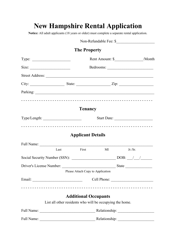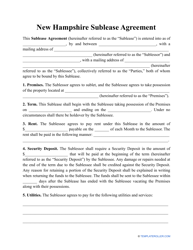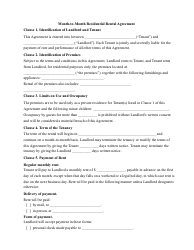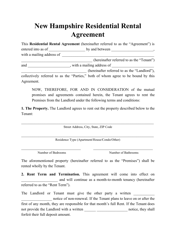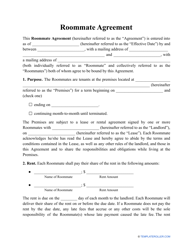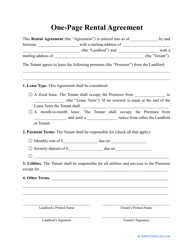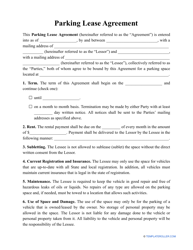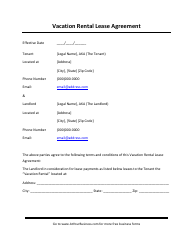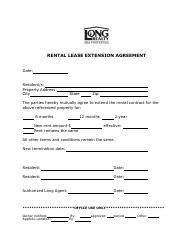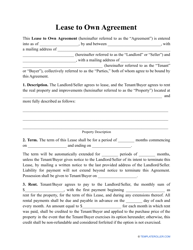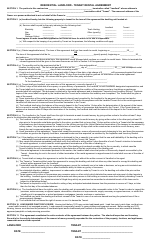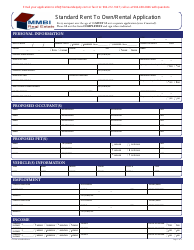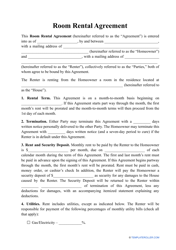Residential Lease Agreement Template - New Hampshire
A Residential Lease Agreement Template in New Hampshire is a document that outlines the terms and conditions between a landlord and a tenant for renting a residential property in the state of New Hampshire. It provides the legal framework for the rental relationship, including details such as rent amount, duration of the lease, responsibilities of both parties, and any specific rules and regulations that apply.
The residential lease agreement template in New Hampshire is typically filed by the landlord or property owner.
FAQ
Q: What is a residential lease agreement?
A: A residential lease agreement is a legal document that outlines the terms and conditions of a rental agreement between a landlord and a tenant.
Q: Do I need a residential lease agreement in New Hampshire?
A: It is highly recommended to have a residential lease agreement in New Hampshire to clearly define the rights and responsibilities of both the landlord and the tenant.
Q: What should a residential lease agreement in New Hampshire include?
A: A residential lease agreement in New Hampshire should include details such as the names of the landlord and tenant, property address, rental term, rent amount, security deposit, maintenance responsibilities, and any additional terms or conditions.
Q: Is a written lease agreement required in New Hampshire?
A: While a written lease agreement is not required by law in New Hampshire, having a written agreement helps protect both the landlord and the tenant by clearly outlining the terms of the rental agreement.
Q: What happens if a tenant violates the terms of the lease agreement in New Hampshire?
A: If a tenant violates the terms of the lease agreement in New Hampshire, the landlord may take legal action, such as eviction, in accordance with state laws and the terms of the lease agreement.
Q: Can a landlord increase the rent during the lease term in New Hampshire?
A: In New Hampshire, a landlord can only increase the rent during the lease term if the lease agreement allows for rent increases or if both parties agree to a rent increase.
Q: What are the tenant's rights in New Hampshire?
A: Tenant rights in New Hampshire include the right to a habitable dwelling, privacy, and protection from landlord retaliation.
Q: Can a landlord enter the rental property without permission in New Hampshire?
A: In most cases, a landlord in New Hampshire must provide proper notice and obtain the tenant's permission before entering the rental property, except in emergencies or specific circumstances outlined in the lease agreement.
Q: How much notice does a tenant need to give before moving out in New Hampshire?
A: In New Hampshire, a tenant is generally required to give a written notice of at least 30 days before moving out, unless the lease agreement states otherwise.
Q: What happens if a landlord fails to return the security deposit in New Hampshire?
A: If a landlord fails to return the security deposit in New Hampshire, the tenant may take legal action, including filing a complaint with the court, to recover the deposit.
Q: Can a landlord refuse to rent to someone based on their race or religion in New Hampshire?
A: No, it is illegal for a landlord to refuse to rent to someone based on their race, religion, or other protected characteristics in New Hampshire, as outlined by federal fair housing laws.
